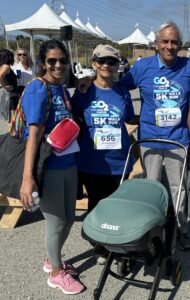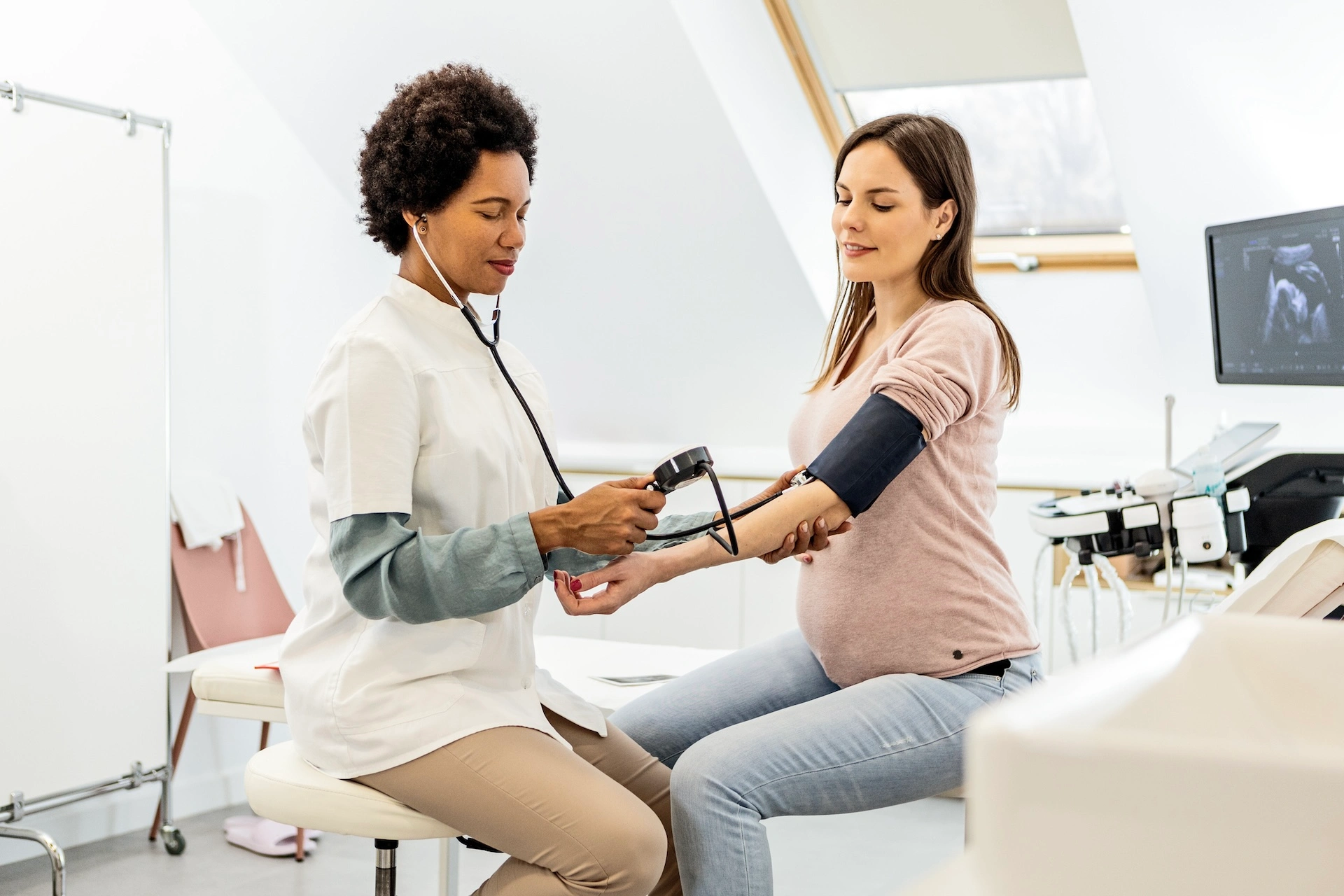Kaiser Permanente research scientist and oncologist was raised and inspired by a family of physicians with a commitment to service
Some families talk about baseball around the dinner table. Others talk about music. Meera Ragavan, MD, MPH, grew up in a family who talked about health policy and social injustice.
These conversations, Ragavan says, instilled in her an interest in both medicine and public policy that put her on the path to where she is today: a research scientist at the Kaiser Permanente Division of Research and an oncologist with The Permanente Medical Group whose studies are centered around mitigating issues of access, affordability, and equity in cancer care delivery. We spoke with Ragavan about the potent impact our families can have, and the advice she would give to fellow early-stage investigators.

Were you always interested in medicine?
My mother and my older sister — they’re my role models — are physicians. I also have a large extended family in India, and many of them are in health care. My grandparents and parents were born in India and were heavily influenced by Mahatma Gandhi and his commitment to social activism and service. We would often discuss and debate health policy and current events at the dinner table, so I grew up with a service-oriented mindset. I didn’t think initially that I would go into medicine, and I went to college with a relatively open mind towards different types of careers in health care. As I began studying health policy, I also had a number of meaningful clinical experiences including shadowing, volunteering, and conducting clinical research at a children’s hospital. After that, it became clear to me that I was most driven by the impact I could have as a health care professional
What led to your interest in oncology?
In medical school I realized I wanted to practice adult medicine, but I wasn’t ready to commit to one field because there were so many things that interested me. But when I began to work with the oncologists at Stanford during my medical school training, I was hooked very quickly. The practice of oncology is centered on high stakes clinical decision-making that is very patient-centric and service oriented, and you truly see and guide a wide range of patients through a complex and challenging journey. I see patients who have been in remission for 5 years, patients who are enrolled on clinical trials, and patients who are approaching the end of their life and needing guidance and support. It is an incredibly challenging, fast-paced, and deeply rewarding career.

Also, while I was in medical school, my aunt, who I was very close to, was diagnosed with lung cancer. Helping her navigate her diagnosis also allowed me to see firsthand what it’s like to be a caregiver to someone with cancer, and that made me even more interested in oncology. Five years later my uncle was also diagnosed with lung cancer, making my dedication to treating patients with lung cancer even more of a personal calling.
Why did you want to conduct research on access, affordability, and equity issues?
Growing up I spent summers in India, and we would visit extended family who lived in rural areas where they didn’t have access to the newest medical treatments or technologies. I knew early on that I didn’t want to work in a lab and that I would not be the clinician or scientist who discovers the next cancer treatment. I’m motivated by the challenge of once you have an effective treatment, how do you actually get it to people who need it in a timely and equitable way? In oncology so many people don’t have access to these treatments. On top of that, I watched my family navigate the health care system trying to find clinical trials or financial assistance programs to help with the high cost of cancer medication, and we had trouble despite having multiple family members in medicine. Seeing how difficult it can be motivated me to want to look at ways to address that for all patients.
You recently received an ASCO Young Investigator Award. What advice would you give to others who are looking to forge a similar career path?
I would tell people whether they are interested in clinical work or research or both to follow your interests and passions. Along the way, you may feel pressured to fit into an existing box or go down an already well-paved path. I was often told during my medical training that the research I was interested in would be challenging to combine with a clinical career in oncology but just because the path hasn’t been well paved yet doesn’t mean it’s a path you can’t take. A career in medicine or research is difficult, and it is that much harder if you are doing something you are not passionate about. The other piece of advice I would give is that a career is a marathon, not a sprint. You need to pace yourself. Burnout is at an all-time high in the scientific field right now. It’s important to commit to our careers but even more important to care for ourselves along the way.
What do you like to do in your free time?
I have two children, a daughter almost 5 and a son almost 2, so all my free time is spent with them. We spend our weekends exploring the many museums and restaurants in San Francisco and hiking throughout the Bay Area. My daughter and I love to cook and bake — our go-tos are banana bread and focaccia.





Comments (0)